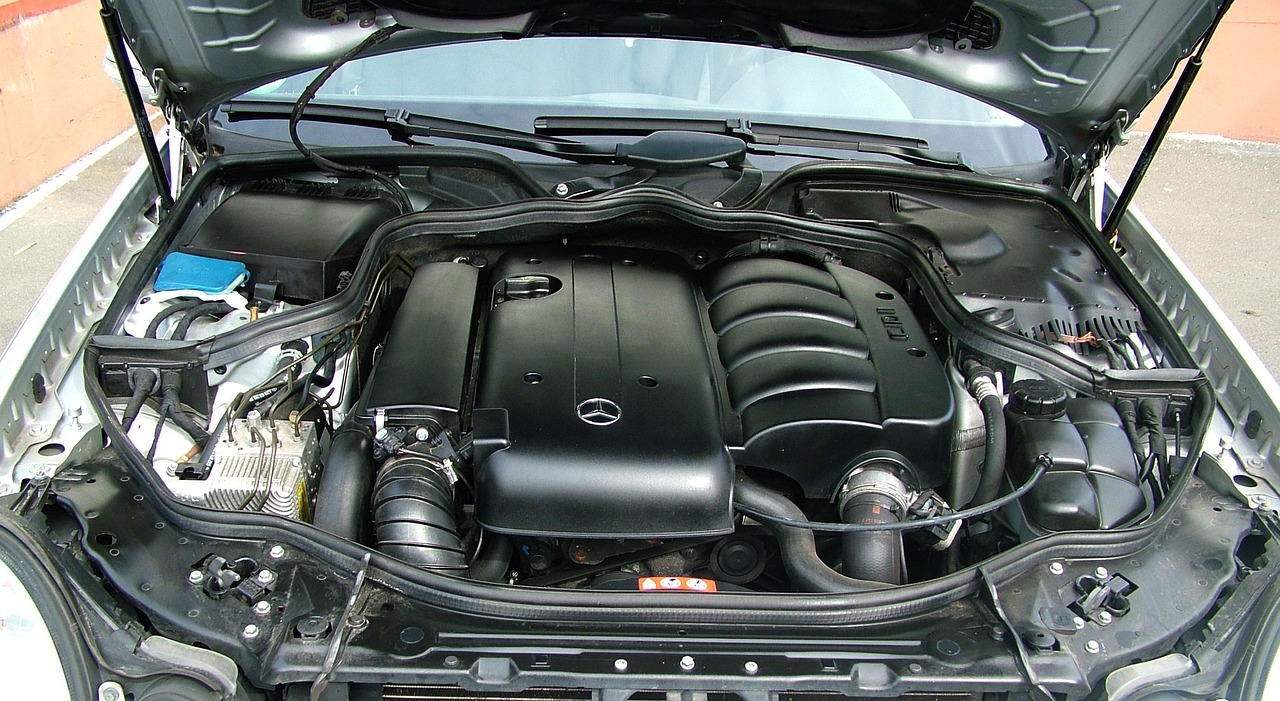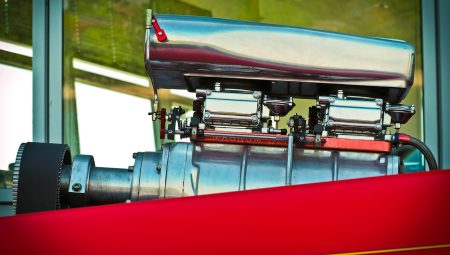Replacing engine mounts can feel like a daunting task, both in terms of time and money. The total cost can vary widely based on several factors, such as the vehicle’s make and model, labor rates in your area, and the choice between OEM and aftermarket parts. On average, you might expect to pay anywhere from $200 to $600 for parts and labor combined. However, don’t let the numbers scare you! Understanding these costs can help you budget effectively and avoid surprises down the road.
When considering the replacement, also think about the value of your vehicle. Investing in quality engine mounts can prolong the life of your car and enhance its performance. Remember, cheap parts might save you money now, but they could lead to higher expenses later on. So, the next time you hear a strange noise or feel excessive vibration, don’t ignore it! Your engine mounts might be crying out for help.
Understanding Engine Mounts
Engine mounts are not just simple components; they play a vital role in the overall performance and comfort of your vehicle. Think of them as the unsung heroes that hold your engine in place while absorbing the vibrations generated during operation. Without these mounts, your engine would be like a wild horse, bucking and thrashing around, causing chaos under your hood.
These mounts are typically made from a combination of rubber and metal, designed to cushion the engine’s movement and reduce noise. When they function correctly, you’ll hardly notice them. However, when they wear down, you might experience a bumpy ride, unusual noises, or even feel the engine shifting during acceleration or braking.
Understanding the importance of engine mounts is crucial for every vehicle owner. Regular checks can help you catch potential issues before they escalate into costly repairs. So, keep an eye (and ear) out for those signs of wear and tear, and remember: a smooth ride is just as important as a powerful engine!
Factors Affecting Replacement Costs
When it comes to replacing engine mounts, several factors play a crucial role in determining the overall cost. First and foremost, the make and model of your vehicle significantly impact the price. Luxury and high-performance cars often have more expensive parts and labor rates compared to standard vehicles. Additionally, the choice between OEM (Original Equipment Manufacturer) and aftermarket parts can lead to considerable differences in cost. OEM parts typically offer better quality and longevity but come at a higher price.
Another key factor is the labor costs, which can vary based on the mechanic’s experience and the complexity of the job. For instance, some vehicles may require more time and specialized tools for engine mount replacement, leading to increased labor charges. It’s essential to understand these dynamics to budget effectively.
Lastly, consider the time required for the replacement. On average, this task may take anywhere from 2 to 5 hours, depending on the vehicle’s design. If you’re planning to hire a professional, knowing the estimated time can help you avoid unexpected expenses. Always remember that investing in quality parts and skilled labor can save you from costly repairs down the line.
Labor Costs
When it comes to replacing engine mounts, can vary widely based on several factors. The complexity of the job plays a significant role; for instance, if your engine mounts are easily accessible, the mechanic can complete the task more quickly, resulting in lower labor charges. On the other hand, if the mounts are hidden behind other components, it may take additional time and effort, increasing the overall cost.
Typically, labor rates can range from $75 to $150 per hour, depending on the mechanic’s experience and your location. In metropolitan areas, you might find higher rates compared to rural settings. Additionally, some shops charge a flat fee for specific services, which can be more economical if you’re on a budget.
It’s also wise to consider whether you want to go the DIY route or hire a professional. While tackling the job yourself can save on labor costs, it requires a good understanding of automotive mechanics and the right tools. If you’re unsure, hiring a professional might be the safer bet to avoid potential mistakes that could lead to further expenses.
| Location | Average Labor Cost per Hour |
|---|---|
| Urban Areas | $100 – $150 |
| Suburban Areas | $80 – $120 |
| Rural Areas | $75 – $100 |
Ultimately, understanding these labor costs will help you budget effectively for the replacement of your engine mounts, ensuring you’re prepared for this essential maintenance.
DIY vs. Professional Replacement
When it comes to replacing engine mounts, the choice between doing it yourself or hiring a professional can feel like a high-stakes game of poker. On one hand, tackling the job yourself might save you some cash, but on the other, it could turn into a costly mistake if you’re not well-versed in automotive repairs. Consider the following:
- Skill Level: Are you comfortable working under the hood? If you’re a novice, you might want to think twice.
- Tools Required: Do you have the necessary tools? Engine mount replacement often requires specialized equipment.
- Time Commitment: How much time can you dedicate? This task can take several hours, especially if you hit any snags.
Hiring a professional can provide peace of mind, as they bring experience and knowledge to the table. Plus, they can often complete the job faster than you could on your own. However, this convenience comes at a price. Weighing the pros and cons of each option will help you make an informed decision that aligns with your budget and confidence level.
Time Required for Replacement
When it comes to replacing engine mounts, time is of the essence. The duration of the replacement process can vary significantly based on several factors. On average, you can expect the job to take anywhere from 2 to 6 hours. This timeframe largely depends on the make and model of your vehicle, as well as the accessibility of the engine mounts. For example, some vehicles have mounts that are easy to reach, while others may require disassembling parts of the engine or suspension system.
Additionally, if you’re considering a DIY approach, it’s crucial to factor in your own skill level and the tools at your disposal. A seasoned mechanic might breeze through the process, while a novice could find themselves taking longer than expected. Here’s a quick breakdown of what influences the time required:
- Vehicle Type: Larger vehicles or those with complex designs may take longer.
- Experience Level: A professional will likely work faster than a DIY enthusiast.
- Parts Accessibility: If engine mounts are hard to reach, expect a longer job duration.
Ultimately, understanding the time commitment involved can help you plan your budget and schedule accordingly. With proper planning, you can ensure your vehicle is back on the road smoothly and swiftly.
Parts Quality and Pricing
When it comes to replacing engine mounts, quality matters. The market offers a variety of options, from OEM (Original Equipment Manufacturer) parts to aftermarket alternatives. While OEM parts might come with a higher price tag, they often guarantee compatibility and durability. Aftermarket parts, on the other hand, can be more affordable but may vary in quality.
It’s vital to consider the long-term implications of your choice. Investing in high-quality mounts can save you from frequent replacements and additional repairs down the road. Here’s a quick comparison:
| Type | Price Range | Durability | Warranty |
|---|---|---|---|
| OEM | $100 – $300 | High | Usually 1-2 years |
| Aftermarket | $50 – $200 | Varies | Often limited |
Ultimately, the choice between OEM and aftermarket parts should align with your vehicle’s needs and your budget. Remember, quality parts lead to a smoother ride and can enhance your vehicle’s overall performance.
Signs of Worn Engine Mounts
Recognizing the symptoms of worn engine mounts is crucial for maintaining your vehicle’s performance. These mounts play an essential role in securing the engine while absorbing vibrations. If they start to wear out, you might notice some telltale signs that can’t be ignored. For instance, excessive vibration during acceleration can feel like your car is shaking off its bolts. This is a clear indication that something is amiss. Additionally, listen for any unusual noises, such as clunking or thumping sounds, especially when shifting gears or driving over bumps.
Another red flag is noticeable engine movement. If you see the engine shifting more than usual during acceleration or deceleration, it’s time to investigate further. Ignoring these signs can lead to more severe issues down the line, including damage to the engine or transmission. The longer you wait, the more costly the repairs can become. So, keep an eye (or ear) out for these signs and address any concerns promptly to save yourself from future headaches!
Common Symptoms to Watch For
When it comes to engine mounts, being proactive can save you a world of trouble. Excessive vibration is often the first red flag; if your car feels like it’s shaking more than usual, it might be time to investigate. Additionally, listen for unusual noises—like clunks or thuds—especially when accelerating or braking. These sounds can indicate that the mounts are failing to do their job.
Another critical sign is engine movement; if you notice the engine shifting noticeably during gear changes or when starting the vehicle, it’s a clear indicator that the mounts are wearing out. To help you keep track, here are some key symptoms to watch for:
- Excessive vibration while driving
- Unusual clunking or thudding noises
- Visible engine movement during acceleration
Ignoring these symptoms can lead to more severe issues, including damage to your engine or transmission, which can be costly to repair. So, keep your ears and eyes open, and don’t hesitate to consult a mechanic if you notice any of these warning signs!
Long-Term Effects of Ignoring Issues
Ignoring the signs of worn engine mounts can lead to a cascade of problems that might not be immediately visible but can wreak havoc on your vehicle’s performance. Think of it like a small crack in a dam; if left unattended, it can lead to a catastrophic failure. Over time, neglected engine mounts can cause:
- Increased Vibration: As the mounts wear out, they lose their ability to absorb vibrations, leading to a rougher ride.
- Unusual Noises: You might start hearing clunks or rattles as the engine shifts more than it should.
- Engine Misalignment: This can lead to further damage to the engine and transmission, causing misfires and operational inefficiencies.
Ultimately, the long-term effects of ignoring these issues can result in costly repairs that far exceed the initial expense of replacing the engine mounts. For instance, if the engine shifts too much, it can damage other components, such as the exhaust system or transmission, leading to repair bills that can escalate into the thousands. Therefore, being proactive about engine mount maintenance is not just about comfort; it’s about protecting your investment and ensuring your vehicle runs smoothly for years to come.
Budgeting for Replacement
When it comes to budgeting for engine mount replacement, being proactive can save you a lot of stress and money. First off, it’s essential to understand the typical costs involved. On average, you might expect to spend anywhere from $200 to $600 depending on your vehicle’s make and model. This range includes both parts and labor. But hold on! Before you rush to the mechanic, consider these factors:
- Mechanic Rates: Different mechanics charge varying labor rates, so shop around!
- Parts Quality: OEM parts tend to be pricier but offer better durability compared to aftermarket options.
- Time Required: The complexity of the job can affect labor costs, so understanding how long it might take is crucial.
To avoid unexpected expenses, it’s wise to set aside an emergency fund specifically for car repairs. Even a small amount saved each month can add up quickly, giving you peace of mind when those repair bills come knocking. Additionally, don’t hesitate to get multiple quotes from different mechanics. This not only helps you find the best price but also ensures you receive quality service. Remember, a little preparation can go a long way in maintaining your vehicle’s health!
Getting Quotes from Mechanics
When it comes to replacing engine mounts, shopping around for quotes from different mechanics is crucial. Not only does this help you find the best price, but it also gives you a sense of the average cost in your area. Think of it as comparing apples to apples; you want to ensure that you’re getting a fair deal without compromising on quality. Start by reaching out to at least three different shops and ask for detailed quotes. Make sure to inquire about:
- Parts Quality: Are they using OEM or aftermarket parts?
- Labor Costs: What are their hourly rates?
- Warranty: Do they offer any warranty on the work performed?
Once you have these quotes, don’t just look at the bottom line. Consider the services included and the reputation of the shop. Sometimes, a slightly higher price can mean better service and peace of mind. Remember, your vehicle is an investment, and maintaining it properly can save you money in the long run. So, take your time, do your research, and choose wisely!
Setting Aside an Emergency Fund
When it comes to vehicle maintenance, is not just a smart move; it’s a necessity. Imagine cruising down the road when suddenly, your engine starts shaking like a leaf in the wind. Without a financial cushion, you could find yourself scrambling for cash to cover unexpected repairs. A well-planned emergency fund can alleviate this stress and keep your vehicle running smoothly.
So, how much should you save? Experts recommend aiming for at least $500 to $1,000 specifically for vehicle-related emergencies. This amount can cover minor repairs, such as engine mount replacements, and give you peace of mind. Here’s a simple breakdown:
| Expense Type | Estimated Cost |
|---|---|
| Engine Mount Replacement | $300 – $800 |
| Other Minor Repairs | $100 – $500 |
By setting aside funds regularly, you can avoid the panic that comes with sudden car troubles. Consider automating your savings—transfer a small amount each month into a dedicated account. This way, when those engine mounts need replacing, you’ll be ready to tackle the costs head-on without breaking a sweat. Remember, a little planning now can save you a lot of headaches later!
Frequently Asked Questions
- What are the signs that my engine mounts need replacing?
If you notice excessive vibrations, unusual noises, or visible engine movement, these could be signs that your engine mounts are worn and need replacement.
- How much should I budget for engine mount replacement?
The cost can vary widely based on your vehicle’s make and model, but it’s wise to budget anywhere from $300 to $800, including parts and labor.
- Can I replace engine mounts myself?
Yes, if you have the right tools and experience, DIY replacement is possible. However, it can be complex, so weigh the pros and cons before diving in.
- How long does it take to replace engine mounts?
The replacement process typically takes 2 to 4 hours, depending on the vehicle and the mechanic’s expertise.





